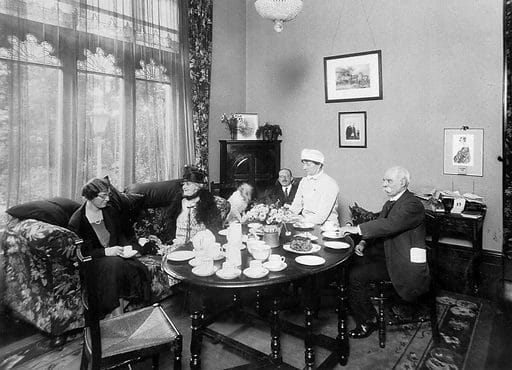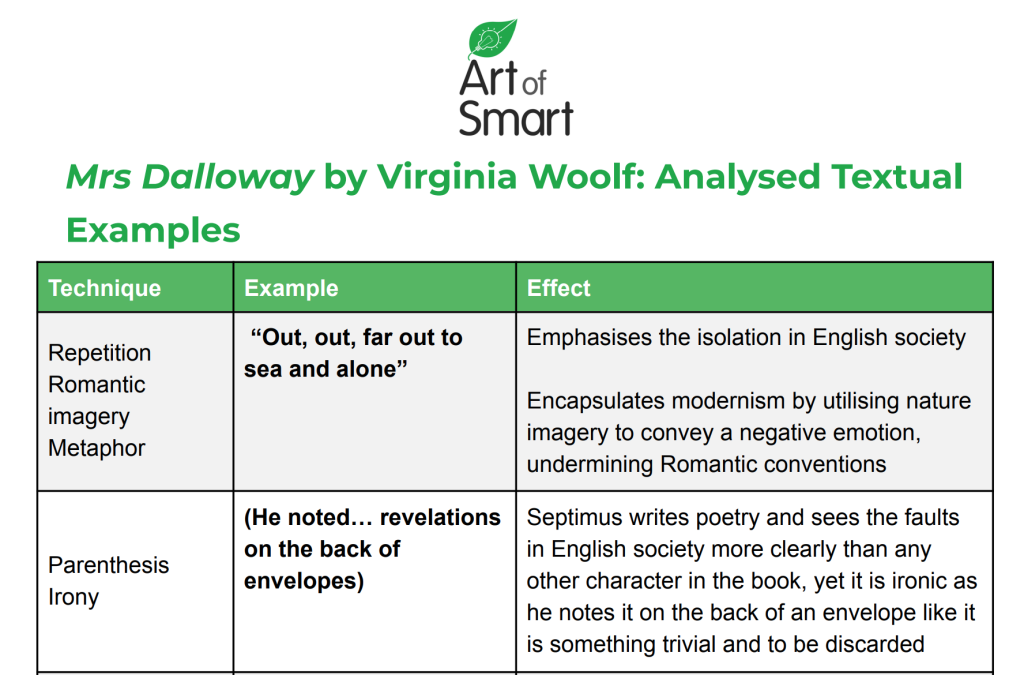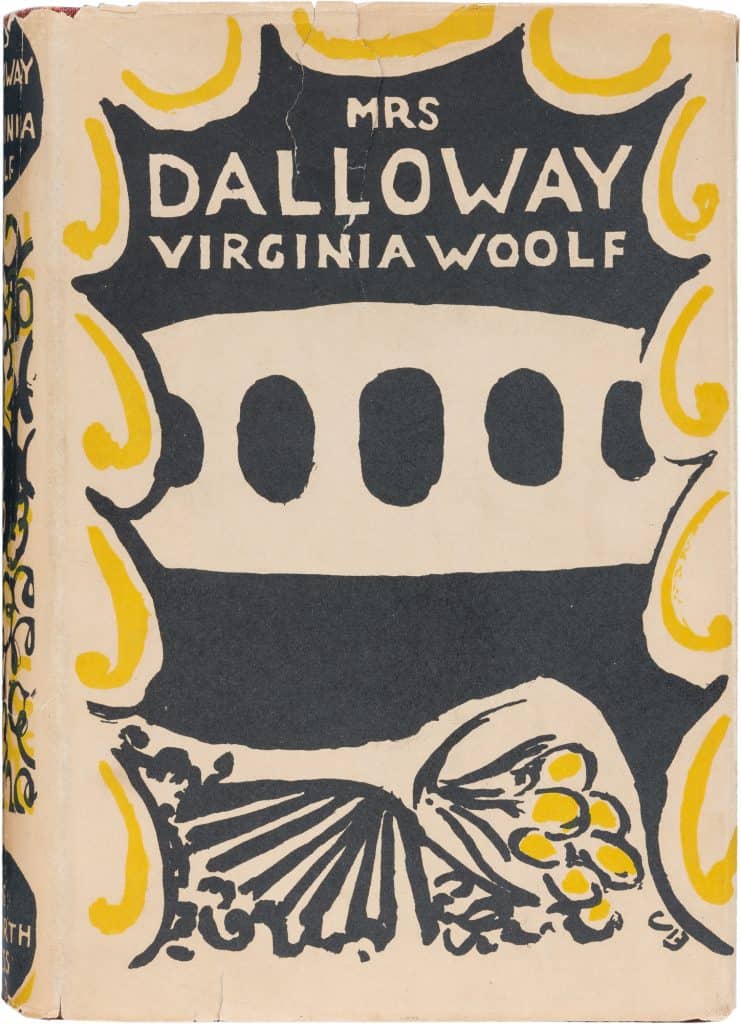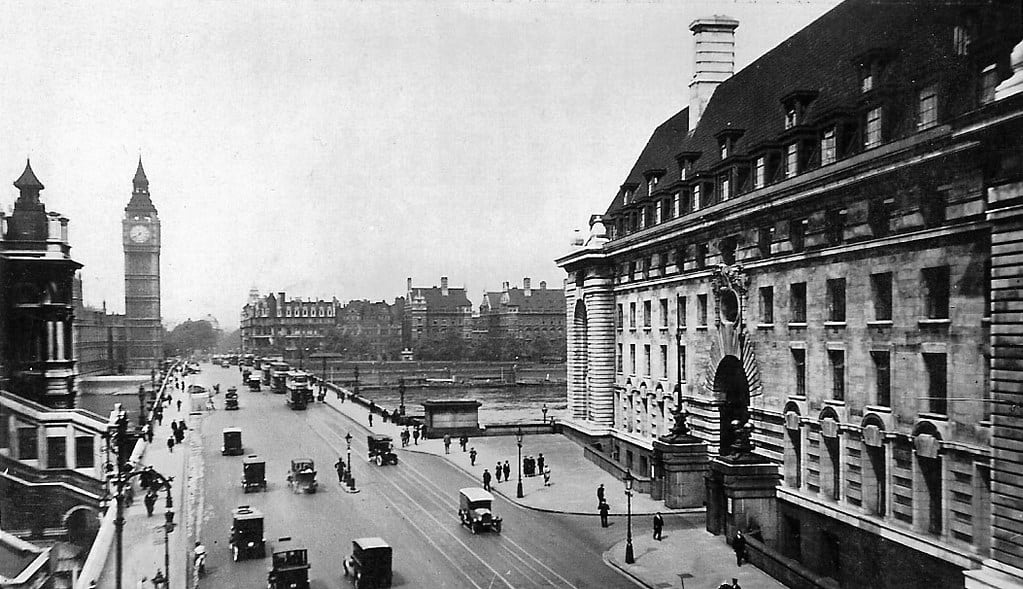In the very first sentence of Mrs Dalloway, our protagonist declares that “she would buy the flowers herself” and perhaps, in a bout of self-pity, you find yourself wishing that she may write this English essay analysis herself too. With our help, you’ll learn about Mrs Dalloway through our summary, list of key characters, explanation of themes, and more!
We’ve put together this guide to make writing your essay on Mrs Dalloway a breeze and have even included a TEE table to help you with analysis and a sample paragraph.
Let’s get into it!
Mrs Dalloway Summary
Key Characters in Mrs Dalloway
Context
Themes Explored in Mrs Dalloway
Analysis of Mrs Dalloway
Studying this Text for the HSC
Summary of Mrs Dalloway
Virginia Woolf’s 1925 novel follows the titular character, Clarissa Dalloway over the span of a single day as she prepares for a party she is hosting that evening. When she returns home she finds Peter Walsh at her place.
He had proposed to her several years ago but Clarissa had refused, leading to him asking if she was happy with her husband Richard. Peter leaves and goes to Regent’s Park.
Image sourced from Wikimedia Commons
We are first introduced to Septimus Smith here who is with his wife at Regent’s Park. They await his appointment with a psychiatrist to treat his shell shock.
Prior to the war, Septimus was a young poet and loved Shakespeare which is likely why much of his hallucinations involve Romantic imagery. At his appointment, Dr Bradshaw doesn’t listen to Septimus and instead plans to separate him from his wife Lucrezia despite objection from the couple.
Richard Dalloway has lunch with two members of high society before returning home to Clarissa with a bouquet of roses. During this time, he thinks about telling Clarissa that he loves her but finds it hard to do so as he has not told her for a long time.
It is in this section that the readers are given an impression that despite a seemingly happy marriage, there seems to be a lack of intimacy between Richard and Clarissa.
Image sourced from Wellcome Collection
We are then transported to a moment of peace and happiness between Septimus and Lucrezia before he is taken to the asylum. When the doctor arrives, Septimus fears that the doctor will destroy his soul and jumps from a window to his death.
Peter hears the ambulance pass by to pick up Septimus’s body. It is here that Clarissa overhears about Septimus’s death even though none of the characters in the novel ever meet him. Clarissa reflects on his death and understands why he decided to take his own life, yet feels partially responsible for his death in her class position.
Key Characters in Mrs Dalloway
Clarissa Dalloway
The protagonist and titular character of Mrs Dalloway, Clarissa is a wife and mother who reminisces about her past as she spends the day preparing for a party she is hosting that evening.
The stream-of-consciousness structure of the novel provides us with direct insight into Clarissa’s thoughts and we can see that she is highly concerned with what others think of her but also takes the time to reflect on herself and think about existential questions.
During the day she thinks of her decision to marry Richard instead of Peter, and thinks about Sally Seton who she once kissed.
Richard Dalloway
Richard is Clarissa’s husband who is a member of Parliament in Conservative Government. While appearing distant from Clarissa, it is evident that he cares about her and provides her with the security and privacy she needs.
Peter Walsh
Peter Walsh is Clarissa’s old friend who had previously proposed, but she had turned him down. He has returned from England and is one of Clarissa’s guests for the evening. Peter is highly critical of everyone, even Clarissa.
Sally Seton
Sally is one of Clarissa’s guests for the evening. It alludes that she was Clarissa’s love interest although she is now married to Lord Rosseter with five boys.
While she enjoyed running around in her youth and was described as feisty, she has since conformed to societal expectations and appears to be a conventional woman in London.
Septimus Smith
A war veteran from WWI who suffers from ‘shell shock’ (now referred to as PTSD). He is detached from society, often hallucinating despite his wife’s best efforts to take care of him. Septimus may be seen as a mirror of Clarissa, viewing English society similarly.
Prior to the war, he was a poet with a keen interest in literature, however he suffers from shell-shock and finds himself unable to feel. As a result, he chooses to commit suicide rather than continue to live in the English society and be unable to feel any emotions.
Lucrezia Smith
Septimus’ wife tries to take care of him as best as she can, however, she is alone in London and taking care of her husband herself. Due to her distance from her home country and Septimus’ mental illness, she feels isolated from the rest of London’s society.
Context
Set within a single day in the middle of June in 1923, Mrs Dalloway is a modernist novel that utilises a stream of consciousness style and flashbacks — a distinct departure from the traditional storytelling form of a novel.
The style of the novel allowed Woolf to examine the rich interior of each character during their everyday and mundane lives. This change in style reflected changes in English society as religion’s influence began to fade and class systems began to break down as individuals began to view the world as chaotic and fractured following WWI.
Prior to WWI, the British Empire was extraordinarily rich and powerful, having colonised many countries. However, WWI meant that the power and wealth they had enjoyed was quickly undermined as the British worried about the men who were sent to war and whether their own country would be endangered.
Following the war, the people no longer trusted British institutions unfailingly and dissent about the class system simmered. Each character in Mrs Dalloway realises that society has failed them in various ways.
Image sourced from Flickr
The rapid changes in politics and society in Britain during this period meant that individuals were constantly in a state of flux. Colonised countries began questioning British authority.
Women who had briefly experienced independence and freedom started demanding equal rights. The men who had gone to war had witnessed and experienced unspeakable horrors and questioned class relations as they saw their friends die but saw upper-class generals continue to live.
Themes Explored in Mrs Dalloway
Feminism and Personal Agency
Throughout the novel, we follow Clarissa who spends the day preparing for a party that she is hosting in the evening. Clarissa seems especially concerned that the party is a success, equating her self-worth and societal status with how her guests will receive her party.
During WWI, while most of the nation’s men and boys were conscripted to work in the army, many women took on roles and jobs that they were previously not allowed to in order to keep the country functioning. For the first time, they were granted personal freedoms and agency.
However, when the men returned from war, many of the women were forced to return to their domestic roles and their personal agency was once again taken away from them. Depending on how you choose to interpret Clarissa’s character: the party may be a means for her to assert her personal agency rebelling against societal expectations of women, or Clarissa has chosen to submit and conform to societal expectations by throwing the perfect party for her guests.
Another character who is deprived of personal agency is Septimus Smith. While Clarissa is oppressed due to her status as a woman in society, Septimus is a male and war veteran and should be well respected.
However, his state of shell-shock means that he is not allowed by his wife and doctors to make his own decisions or to express himself freely. Ironically, the one and only decision Septimus is allowed to make is to throw himself out of a window — it is only in death that he is free.
Existentialism and Modernism
The passage of time is keenly felt throughout Mrs Dalloway. Despite being set within the span of a single day, the Big Ben tolls on the hour and every time it does, the characters are forced to confront the passage of time and their mortality.
Septimus’ death emphasises this theme in the novel and is particularly interesting when examined against how it helped Clarissa to confront and accept her inevitable mortality.
The stream-of-consciousness style of the novel provides us with insight into the rich, inner lives of each character in contrast to how the broader English society perceives the individuals. Clarissa has contradictory needs for privacy but to connect with others — she throws the party to bring people together, yet in a room full of people she also appears to be lonely and seeking connection or intimacy.
Mental Illness and Oppression
Set in the immediate aftermath of WWI, Mrs Dalloway looks at the various ways society has oppressed the characters and their desires. Both Clarissa and Septimus do not naturally fit into English society.
While Clarissa conforms — throwing a party, choosing to marry Richard and not pursue her romantic interest in Sally and being the perfect hostess — Septimus radically rejects this choosing death.
Septimus represents many of the post-war veterans who returned to London suffering from shell-shock. Woolf criticises the way patients of mental illness are treated through Septimus — he is spoken through his wife, his attempts to express himself are dismissed and his doctors are impatient with him. This is an especially pertinent theme if you take into consideration Woolf’s own struggle with depression throughout her life.
How to Analyse Mrs Dalloway in 3 Steps
Step 1: Choose your Example
When picking an example ensure that you are able to identify a technique in the text. For this we have chosen the following quote:
“Mrs Dalloway said she would buy the flowers herself”
Step 2: Identify your technique(s)
Ensure that the technique you choose for your quote supports your analysis or help you to build your argument.
In the above quote, there is an imperative and symbolism in the flowers.
Step 3: Write the analysis
When writing your analysis of Mrs Dalloway, focus on the effect of the technique and how it supports your argument. Below is an example of how you may analyse the specific quote we’ve identified above:
The start of the novel declares that “Mrs Dalloway said she would buy the flowers herself”, this introduces the readers to the pervading theme of personal agency for women in 1920s England. It is a trivial action that Mrs Dalloway sets out to do and conforms to societal expectations for her, however it is also an act of personal agency as Clarissa is allowed to step into London society by herself and pick out the flowers she desires.
Studying this Text for HSC Advanced English Module A: Textual Conversations
Module A is a comparative study you’ll be studying Mrs Dalloway with The Hours. Firstly identify the common themes between the two texts and think about how they are similar or differ — this will help you to plan and structure your essay!
Link #1: Texts, Contexts and Values Shape Meaning
Since its publication in 1925, the world and society has changed greatly. Arguably, women in the Western world now have close to equal opportunities and rights as men, so it is important to consider why we continue to read and study Mrs Dalloway.
So when watching The Hours you should consider how Daldry extends or reframes the key themes in Mrs Dalloway so that it is easier for the modern audience to relate to. The character of Septimus and Richard are mirrors of each other, both are poets and both feel like they have been failed by society.
However, where Septimus takes this time to reflect on himself and express gratefulness to his wife, Richard is manipulative and bitter.
Link #2: Considered Personal Perspective
Module A provides an opportunity for you to reflect critically on the text and consider which one you think is more effective and why. You can consider how the author/director’s personal context shaped the text that they have produced, but also how your own personal context may shape your response to the text and which one you relate to more.
It is best for you to pick a theme that resonates with you — for example feminism may be one that is relatable to many and the idea of equal rights and opportunities for all.
Additionally, existentialism and the passage of time may also be particularly relatable as both Woolf and Daldry consider the big questions in life although they never provide answers.
Need some help analysing other texts?
Check out other texts we’ve created guides for below:
- All the Light We Cannot See
- Lord of the Flies
- Hamlet
- Rainbow’s End
- Jane Eyre
- In Cold Blood
- King Richard III
- To Kill a Mockingbird
- Run Lola Run
- King Lear
- Jasper Jones
- One Flew Over the Cuckoo’s Nest
- Macbeth
- Things Fall Apart
Are you looking for some extra help with your analysis of Mrs Dalloway?
We have an incredible team of English tutors and mentors!
We can help you master your analysis of Mrs Dalloway by taking you through the summary, context, key characters and themes. We’ll also help you ace your upcoming English assessments with personalised lessons conducted one-on-one in your home or online!
We’ve supported over 8,000 students over the last 11 years, and on average our students score mark improvements of over 20%!
To find out more and get started with an inspirational tutor and mentor, get in touch today or give us a ring on 1300 267 888!
Tiffany Fong is currently completing a double degree in Media and Communications with Law at Macquarie University. She currently contributes to the university zine, Grapeshot where she enjoys writing feature articles, commentary on current affairs or whatever weird interest that has taken over her mind during that month. During her spare time, Tiffany enjoys reading, writing, taking care of her plants or cuddling with her two dogs.








